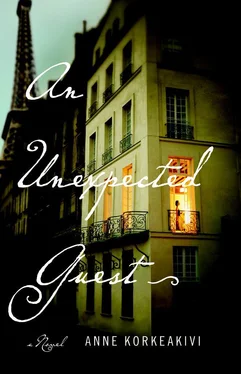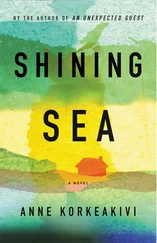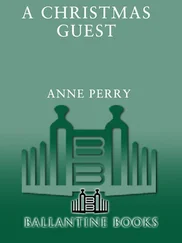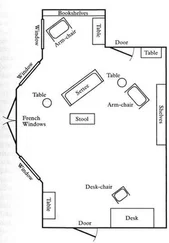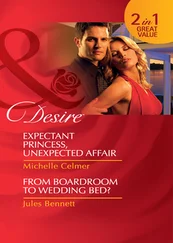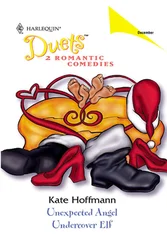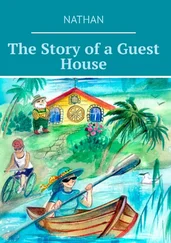“Jamesons all around! Straight up.” Kennedy ordered three Irish whiskeys for the men without asking anyone’s opinion. Kennedy’s maternal grandfather, James O’Malley, fresh in Boston from County Cork at the turn of the century, had been a well-known pugilist. Clare had often heard her parents remark on how closely Kennedy had inherited his temperament. “How about you, Clare? What will you have? A nice Guinness?”
Edward Moorhouse waited while she ordered a glass of soda. Then he said to the waiter, “I’ll have my whiskey on the rocks, thank you.”
She bowed her head, waiting for Kennedy to spew forth reproach at this despoilment of good whiskey, but the Brit continued right along, in that even, elegant voice of his, giving no one the chance to get a word in: “I read a fascinating article about the Connecticut River on my way up here. It said that there were three kinds of trout living in the river, and that Atlantic salmon is currently being reintroduced. I’ve had the pleasure of seeing a bit of America over the past few months of being posted here, and it’s rewarding to read so often about such efforts to reclaim your land back from post — Industrial Age pollution. You have an extraordinarily beautiful country.”
Clare watched her father and Kennedy rendered wordless, unsure whether they were being complimented for having a handsome country or insulted for having allowed it to become polluted. In the confusion, the sacrilege of spoiling good whiskey with ice was forgotten.
My, she thought, this Edward Moorhouse is good. And she’d taken him for a pushover. Normally she would walk a mile out of her way to avoid being party to conflict, but something in her awakened. She sat up straighter.
More thorough introductions followed. Her father took care of hers, pointing out that Edward and Clare both lived in Washington. She waited for Edward to inquire which neighborhood, but “Washington, D.C., is a beautiful city, Miss Fennelly” was all he said.
“We go by first names here,” Kennedy cut in, “here” meaning in America rather than in formal, stuffy, elitist Great Britain, though almost everyone referred to Kennedy himself by his last name and he almost always referred to himself in the same way. On the telephone: “Kennedy here.”
“Clare’s just begun work as a language specialist,” her father said.
“Museum guide,” Kennedy interjected.
“And translator,” her father said. “She doesn’t want to do anything governmental, though. Art. She likes art.”
Edward looked back and forth between her dad and Kennedy. When they were finished discussing her as though she wasn’t there, he turned to her. “May I ask which languages?”
“French, Spanish, and Italian. She does all of them. And English, of course,” her father said.
“And English?” Edward repeated, still smiling at her.
Somehow, she understood he wasn’t making fun of her humble accomplishments, nor of her father’s exaggerated pride in them, but, rather, he was complimenting her. She waited for him to add some remark about how unusual it was for Americans to speak so many foreign languages. He didn’t.
She smiled back despite herself and found herself speaking up for a change. “Especially English.”
“So, how long you been down in Washington?” Kennedy asked Edward, propelling the discussion towards Edward’s work for the British Diplomatic Service. He let Edward speak for a while before interrupting.
“Don’t you feel like an asshole going around asking people to pony up for the British in Ireland?” Kennedy plopped down his glass, splashing whiskey up onto his fingers. Clare hoped against hope he wouldn’t lick them. Something about this Englishman made her want not just to sit up but to make the world around her sit straight, too. The way that he managed to create a sense of calm and civility around himself was almost hypnotic. She wanted him to respect them. She wanted him to notice her.
“No.” Edward looked as tranquil as the potted fern hanging from the ceiling above them. “Because I’m not. I’m asking people to pony up for the British in Great Britain. ”
The table fell silent.
Faced with their visitor’s unruffled reasoning, and his nerve presenting it before such an obviously hostile audience, even Kennedy seemed unable to muster up an immediate counterattack. He rubbed his fingers on his napkin. “Yeah, well, not everyone would agree with that,” he said finally, but too late. His retort fell over their lunch in a thousand fluttery pieces, like wisps of ash floating out from a fireplace.
Clare’s dad glared into his glass. She returned to wishing she hadn’t agreed to join them. “They do great steaks there,” her father had said the previous evening, his face intermittently illuminated by the fluorescent street lamps they were passing. “And it’ll give us a little extra time together.” She knew better now. She’d been invited as a buffer, to keep Kennedy decent and her father polite. Her father hated controversy as much as she did, almost as much as he was loyal to the idea of a united Ireland, and he was old school — he thought it unseemly to argue in front of women or children. He’d never lose his temper with a guest in front of her. Especially not in front of her. Since childhood, her family had prodded her for her reserve, for her coolness, but they knew when it could be useful.
But this Brit didn’t require a human shield. “I’ll wager the Irish don’t need anyone’s help,” Edward continued, passing right over Kennedy’s comment and looking at her father. “Astonishing people, the Irish. The culture, what a gift. The Irish War was a setback for them, in terms of economic development. No doubt about it, they’ve had a lot of setbacks to contend with. It’s interesting to ponder what might have happened to them had they had a different history. But mark my words, they’re going to claim their place in the global economy within the next two decades. The rest of Europe is going to be on their knees to them.”
Of course, he was only talking about the five-sixths of the island that comprised the Republic of Ireland. Well schooled by Niall in the wiles of the British, Clare understood this. But the hazy reference worked to soothe her father and Kennedy. To their ears, Edward was as good as admitting the British had mucked up Ireland’s history. She certainly wasn’t going to clarify the Brit’s meaning.
“Bastard’s job he’s got, but he still was an awfully nice guy,” she heard her father telling her mother that evening. “Suppose it’s not his fault. Suppose they have to take whatever’s assigned them.”
“You say he lives in Washington?” her mother had asked.
To her, the following morning: “So, Clare, what did you think of your father’s visitor?”
The growl of the blow-dryer stopped, tumbling Clare back into the present. Marco laid the dryer down on the counter and prodded her hairline experimentally. A strand fell loose, tickling her nose and forehead. He frowned, tucked the hair back towards her blond crown and released a fine mist of hair spray.
“With summer on its way, shall we up the highlights next time you come in?” he asked.
In a sense, Edward had stopped aiming for making a name in the Middle East and begun working on getting the ambassadorship in Dublin from that very moment they met. By the end of this summer, more than two decades later, he might finally have it. The children would come home to Paris for the last time this June; the following summer, “home” would mean Dublin or wherever they were next posted. Or “home” would, finally, once and for all, mean nothing for them, as they’d be too old and too far away, particularly if Edward landed someplace to which the boys had no connection and had never lived.
Читать дальше
